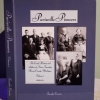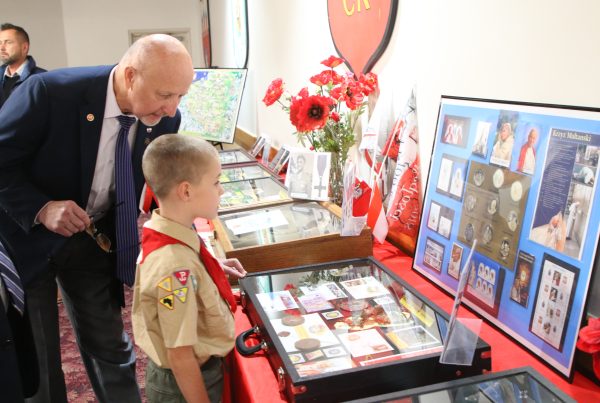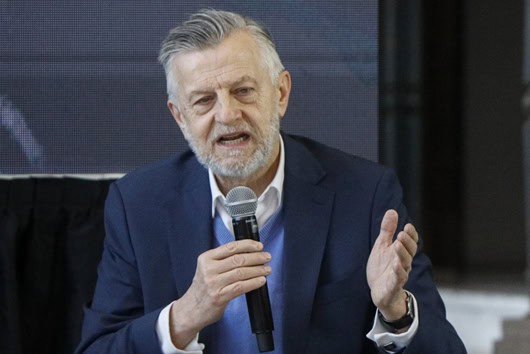In August 1980, in the heart of communist Poland, a movement was born that changed the course of history. Solidarity wasn’t just a trade union—it was a spiritual awakening of the nation. Today, 45 years later, we commemorate not only the events but also the values of our country: courage, community, and responsibility.
Although the Solidarity movement was born in Gdańsk in August 1980, its echoes resonated far beyond Poland’s borders, including in the heart of American industry, Detroit.
I decided to look into the archives of our newspaper, Dziennik Polski. I was interested only in two months of 1980, August and September, which changed the course of Polish and European history.
First and foremost, I noted that Dziennik Polski kept the Polish community in the Detroit metropolitan area up-to-date on the August events in Poland. In a regular column, the late Robert Strybel, one could learn about the strikes that had begun, the demands of the strikers, and the leaders of the emerging social movement.
Here are the key events of August and September 1980 that led to the birth of “Solidarity”:
August 14: Strike at the Lenin Shipyard in Gdańsk following the dismissal of Anna Walentynowicz, an activist of the Free Trade Unions. Lech Wałęsa joins the protest.
August 16: The Inter-Enterprise Strike Committee (MKS) is formed, formulating the famous 21 demands, including demands for free trade unions, the right to strike, freedom of speech, and freedom of religion.
Strikes spread to over 700 workplaces across the country—from the coast to Silesia.
August 31: Signing of the August Agreements between the MKS and the government of the Polish People’s Republic. This was the first time the communist authorities recognized an independent social movement.
September 17: The nationwide Independent Self-Governing Trade Union “Solidarity” is founded in Gdańsk.
The movement grows rapidly—by the end of the year, it has over 10 million members, representing almost one in three adult Polish citizens. “Solidarity” becomes not only a trade union but a social movement uniting workers, the intelligentsia, the clergy, and the democratic opposition.
The August issues of the Dziennik Polski published appeals to the Polish diaspora, titled “Let’s Help Our Compatriots,” outlining the socio-political situation in Poland and their expectations for Washington.

On August 25, 1980, representatives of the Polish diaspora, along with Alojzy Mazewski, president of the Polish Congress and the Polish National Alliance (ZNP), held a two-hour conference at the State Department. The discussion focused on the situation in Poland and the US government’s stance on the workers’ strike in Gdańsk and other centers. The basis for the debate was a memorandum submitted by Mazewski. Representatives of the Polish diaspora criticized the initial statements of US diplomatic representatives, accusing them of indifference towards the strikers in Poland. The Polish diaspora supported the strikers’ demands, calling for the United States to provide moral support for the strikers, and emphasized that the crisis in Poland should be resolved through agreements between the authorities and the strikers, without external intervention.
The goal of my archival research was to ask myself: How did the Polish diaspora in the Detroit metropolitan area respond to the events of August 1980 in Poland?
The Polish diaspora avoided any incitement, fully aware that it could only afford moral and physical assistance.
Churches, especially those in Hamtramck and Sterling Heights, became places of spiritual support and political mobilization. Masses were held for the homeland and for the strikers. They asked God to protect the Polish Nation from disaster. During a service at Our Lady Queen of Apostles Church in Hamtramck on August 26, 1980, Bishop Krawczak said: “It was a religious meeting in which we expressed our concern for the situation in Poland and asked God to keep Poland in peace and tranquility.” In his sermon, the Provincial of the Society of Christ at Our Lady of Częstochowa Church asked Our Lady for a miracle of peace and justice, that God would give Poles the strength to overcome the difficulties the nation is currently experiencing.
Polish organizations in Detroit, such as the Polish National Alliance and the Polish American Congress, organized marches, collections, and prayers for the workers in Gdańsk.
Fundraising events were held, for example, a Saturday radio collection raised $12,000 to help Polish workers, organized by the Michigan Polish American Congress. The Polish community spontaneously responded to appeals for help for workers fighting for freedom in Poland.
Polish language Saturday schools and organizations such as the Polish Scouting Association in Detroit taught about Solidarity as an example of the fight for human rights.
At the Polish House in Detroit, evenings of poetry and patriotic songs were held, where young people learned about Lech Wałęsa and Anna Walentynowicz. Information evenings were held, where activists explained the situation in Poland and showed recordings of protests, and raised funds to help the families of those interned. In one room, a portrait of Lech Wałęsa hung next to Our Lady of Częstochowa—a symbol of faith and struggle.
Polish newspapers, such as Dziennik Polski, now Tygodnik Polski/The Polish Weekly, published letters from relatives in Poland, reports from Gdańsk, and instructions on how to write to members of Congress regarding sanctions against the communist regime. Editors organized meetings with young people, teaching them what Solidarity was and why it was worth remembering.
Posters, photographs, and poetry became tools of education and empathy.
Polish shop owners often displayed posters reading “We Support Solidarity” next to family photos from Poland.
I must mention the broadcasts of “Pomost” radio in Detroit, which, as part of the “Pomost” Social-Political Movement, was deeply involved in informing the Polish diaspora about the events of August 1980 in Poland—especially the strikes at the Gdańsk Shipyard and the birth of “Solidarity.” A special role was played by Dr. Janusz Subczyński, a prominent neurosurgeon who supported Pomost’s activities in Detroit.
Detroit’s Polish diaspora understood the significance of the events of August 1980.
Detroit, as a city with a strong union tradition (UAW, AFL-CIO), saw “Solidarity” as an inspiration. Some activists compared the struggles of workers in Poland to their own struggles for workers’ rights.
In 1981, after the imposition of martial law, Detroit’s trade unions issued a Solidarity statement and supported sanctions against the communist regime. In the 1980s, many members of the Polish community in Detroit organized rallies in support of Solidarity, especially after the imposition of martial law in Poland in 1981.
For many Metro Detroit residents, Solidarity is not just history—it’s a personal legacy. It’s the memory of a father or mother who wore an anchor pin in 1980, or a grandmother who spoke of strikes and hope.
Contemporary generations, though distant from the events of August 1980, learn about them through educational activities, meetings with Solidarity activists, exhibitions, and the recollections of older family members. It’s worth organizing meetings with emigrants from the 1980s; their memories often include stories of how Solidarity symbolized hope and dignity for them in times of uncertainty.
Alicja Karlic
Polish Media Center at PICROL









